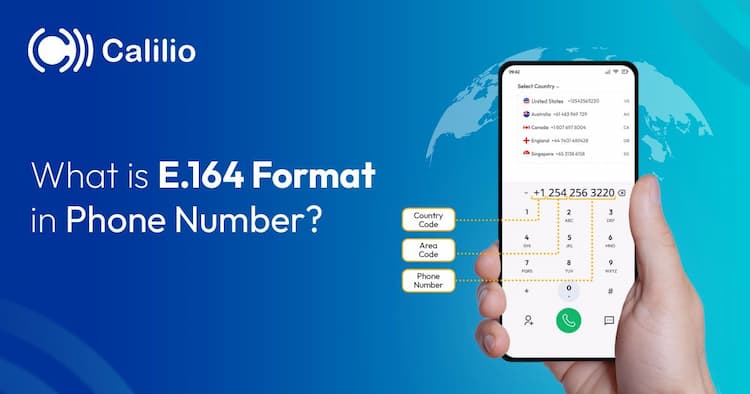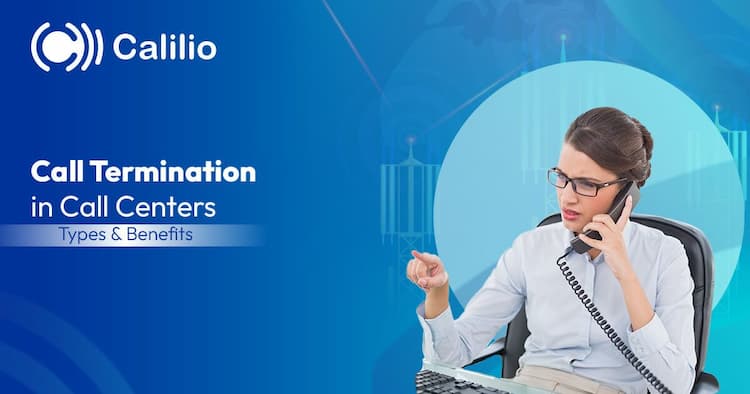
When it comes to setting up a reliable and efficient contact center, businesses often find themselves at a crossroads. Whether you're a startup wishing to scale rapidly or an established enterprise struggling to manage high call volumes, two popular solutions usually come to mind: cloud and premise-based contact centers.
While both share the primary goal of boosting communication between businesses and customers, they have distinct features and benefits.
In this blog, we’ll explore cloud vs premise based contact center in detail to help you choose the best solution for your business.
💡 Key Highlights:
- Cloud contact center works over the internet and unifies voice, text, and email in a single platform.
- An on-premise contact center runs on the business-owned infrastructure, requiring in-house setup and maintenance.
- Both systems provide call routing, multichannel support, and CRM integration.
- Cloud contact center is best for scalability and cost-efficiency, while on-premises is ideal for control and security.
Understanding Cloud Contact Center
A cloud contact center is a software-based customer service solution that allows businesses to manage customer interactions, including voice/video calls, emails, and texts in a single interface over the internet. It stores all the data and applications in the cloud, bypassing on-premises hardware. This reduces the overall operational cost and provides smooth maintenance and updates. All you need is a stable internet connection.
Key Features
- Omnichannel Support: Combine all communication channels (voice, email, text) into a single interface for a consistent customer experience.
- Call Routing and IVR: Direct calls to the appropriate department or member and use automated voice prompts ("Press 2 for support") to guide customers.
- Call Recording and Monitoring: Record and store all conversations, which can be monitored later for training and quality assurance purposes.
Benefits of Using Cloud Contact Center
Cloud contact centers provide flexible, scalable, and cost-effective automated communication solutions, enhancing customer interaction.
- Rapid Installation and Updates: Quick setup and automated updates with minimal manual effort.
- Improved Customer Experience: 24/7 customer support for faster issue resolution.
- Flexibility: Allows you to use its services from anywhere, providing a flexible option for remote workers.
- Scalability: Add more agents or features to handle high call volume without additional infrastructure.
- Affordable Cost Structure: Operates on an affordable subscription or pay-as-you-go model.
Get an Affordable Contact Center Software with Advanced Telephony Features
Understanding On-Premise Contact Center
An on-premise contact center is a contact center with physical hardware and software installed on the company’s infrastructure rather than in the cloud or with a third-party service provider. In this type of contact center, all customer interactions are managed internally, and the company’s IT staff is responsible for configuring, upgrading, and maintaining the system.
These services are best suited for enterprises that require tight control over their operations and customization, allowing them to tailor the system to their unique needs.
Key Features
- Control and Customization: Enterprises have full control to customize the additional features and users.
- Data Privacy and Security: Offers high privacy as data is stored on the business’s servers.
- On-site Infrastructure: Require hardware and software, such as servers, network equipment, and other communication tools.
Benefits of Using On-Premise Contact Center
An on-premise contact center gives businesses full control to customize features and manage users, while offering better data privacy.

- Predictable Cost: Cost-effective in the long run, due to lower ongoing maintenance costs.
- No Dependency on Third-Party Providers: Fully managed in-house, eliminating reliance on third-party providers.
- Data and Security: All the data remains confidential within your infrastructure.
- Better Integration with Existing Systems: Integrates easily with existing systems without complex data migration.
Key Differences Between Cloud and On-Premise Contact Center
Cloud contact centers are hosted online and easy to set up, while on-premise centers are managed in-house with more control but need higher upfront costs and longer deployment.
Here’s how Cloud Contact Center and On-Premise Contact Center differ in different aspects:
Cost Structure
The cloud contact center operates on a pay-as-you-go model or subscription package, ultimately reducing the initial and ongoing costs.
Conversely, the premise contact center requires a higher upfront payment to purchase a license and set up physical hardware. Businesses must invest a large amount before using the services.
Flexibility and Scalability
Cloud contact centers offer greater flexibility, allowing businesses to adjust resources based on their need and enabling them to grow without needing physical upgrades. Adding features and services is easier; you just need to install the application.
On the other hand, premise contact centers are less flexible; they require additional infrastructure for scaling up and down, making the process time-consuming and complex.
Setup and Deployment
Setting up and deploying cloud-based contact centers is easier and faster, as they require minimal physical configuration. Also, updates are automatically implemented by the cloud.
On the contrary, a premise contact center is hosted locally and requires you to manually set up all the software and hardware. Additionally, deployment time is also longer, as everything must be built from scratch.
Security
Most VoIP providers offer cloud contact centers with advanced security features, such as encryption, multi-way authentication, and access control, to protect customer privacy.
Premise-based contact centers are fully controlled by the organization itself, making them ideal for businesses where security compliance is their top priority. However, the privacy and security of the system entirely depend on the company’s policy and the security measures it has adopted.
Service Reliability
The cloud contact center service reliability depends on your VoIP service provider’s infrastructure and SLAs (Service Level Agreements). Most providers claim to offer 99.9% uptime.
On-premise contact center reliability depends on the organization’s power, network, and data backup and recovery infrastructure.
Accessibility
Cloud contact center solutions are best suited for distributed and remote workers. As all the services are cloud-hosted, you can access them anywhere, anytime.
Premise-based contact centers, on the other hand, are typically location-bound but can be extended for remote access with additional infrastructure.
Management and Control
Cloud contact centers are managed and controlled by third parties, offering you only partial control. It means service providers can directly influence how you manage customer interactions.
Conversely, every interaction and information in the on-premises contact center is managed and controlled by the internal IT expert. The company has full control and access to customer data and necessary updates.
Quick insights on cloud vs. premise contact center:
| Setup and Deployment | Takes more time to install and configure everything. | Instant setup without the need for physical infrastructure. |
| Security | Fully controlled by the company’s own team. | Secured by a provider with encryption and access control. |
| Service Reliability | Depends on your power, internet, and backup system. | High uptime (up to 99.99%) as offered by the service provider. |
| Accessibility | Location-bounded unless additional setup is done. | Accessible from anywhere with stable internet. |
| Manage and Control | Managed and controlled by in-house IT staff. | Managed by the service provider. |
Are There Any Similarities Between Cloud and Premise Contact Centers?
Both cloud and on-premise contact centers facilitate communication between businesses and customers, offering similar call features like call routing, IVR, call recording, and CRM integrations. Both allow businesses to handle customer inquiries across various channels like voice, video, email, and chat, while allowing customization to fit specific business needs and workflows.
Conclusion
Choosing between a cloud and an on-premise contact center depends on your business requirements, priorities, and long-term strategy. On-premise solutions are ideal for organizations requiring maximum control over operations and strict security compliance. And, if you’re looking for a scalable, cost-effective, and higher uptime solution, then a cloud contact center can be a better option.
Frequently Asked Questions
Is the cloud more secure than the on-premise contact center?
The cloud is often secure, as most cloud providers are experts in security technologies. However, on-premise systems give you more control over security but require additional effort and resources to maintain.
Is on-premise more expensive than the cloud?
Yes, on-premise contact centers are relatively more expensive than the cloud, requiring high upfront costs for initial setup and hardware.
Latest Posts
From the blog
The latest news, technologies, and resources from our team.





